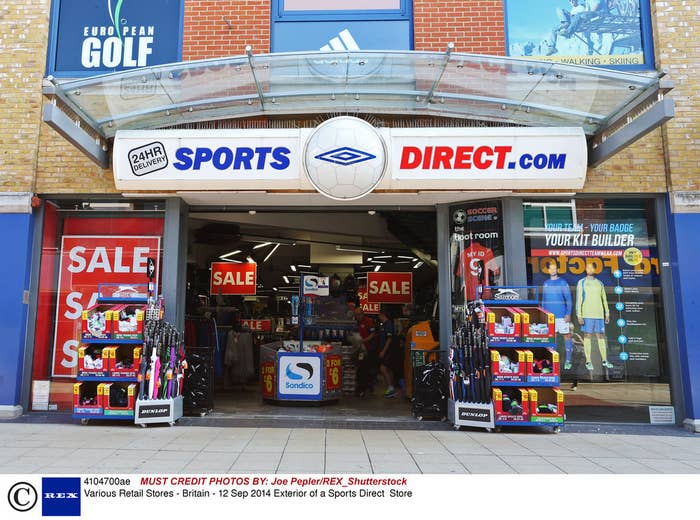
When the Conservatives were voted back into power last week, the victory was a particularly joyous moment for one person: Mike Ashley, the owner of Sports Direct. Sports Direct's share price had steadily declined throughout April as investors became fearful of an Ed Miliband-led government banning zero-hours contracts. But as soon as the Conservative victory was confirmed, the shares jumped from £6.20 to £6.56, giving Ashley a theoretical £100m boost to his wealth.
Sports Direct owns 420 stores across the UK and in 19 other European countries. In a parliamentary hearing last month, its chairman, Keith Hellawell, admitted that the company employs 15,000 people – around 75 per cent of its 19,000 UK workers – on zero-hours contracts.
These contracts, which cover 2.3% of the UK workforce, allow employers to retain staff with no guarantee of work. Such contracts can be beneficial for those who prefer to work flexible hours – but because they do not specify set working hours, they also do not guarantee a set income for employees, meaning their pay depends on how many hours they are allocated, often at short notice. As a result, they have attracted significant criticism.
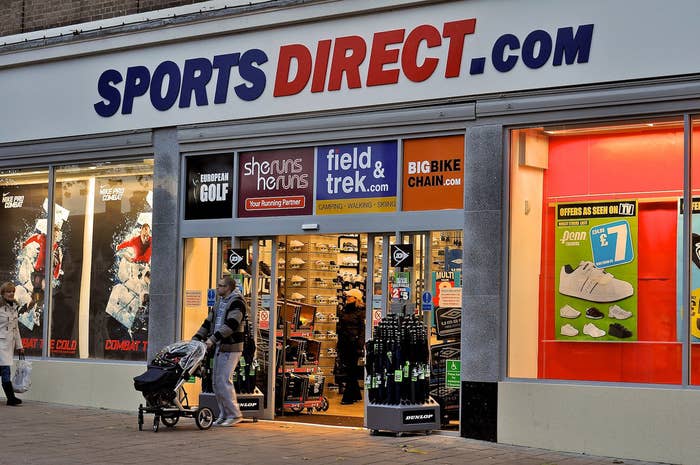
At that parliamentary hearing, Sports Direct was heavily criticised for its reliance on such contracts: The Independent estimated that it accounts for one in five zero-hours workers across the retail sector.
But it's not the only reason the firm has come under fire. In a recent Dispatches documentary, investigators gained access to the Shirebrook depot in Derbyshire, the central hub for Sports Direct in England, which employs more than 5,000 people, the majority on zero-hours contracts. It described the warehouse – which is the size of 14 football pitches – as fostering a "Victorian" and "sweatshop" environment, with workers too "afraid" to speak out. In English and Polish, tannoy announcements are made naming employees for not working fast enough.
Shirebrook uses a "six strikes and you're out" disciplinary procedure. BuzzFeed News has obtained the criteria used by Transline, one of the two employment agencies that provides temporary staff for Sports Direct (the second being Best Connection). While many "strikes" address health and safety and gross misconduct, other offences include:
- Taking long toilet breaks
- Excessive chatting
- Period of reported sickness
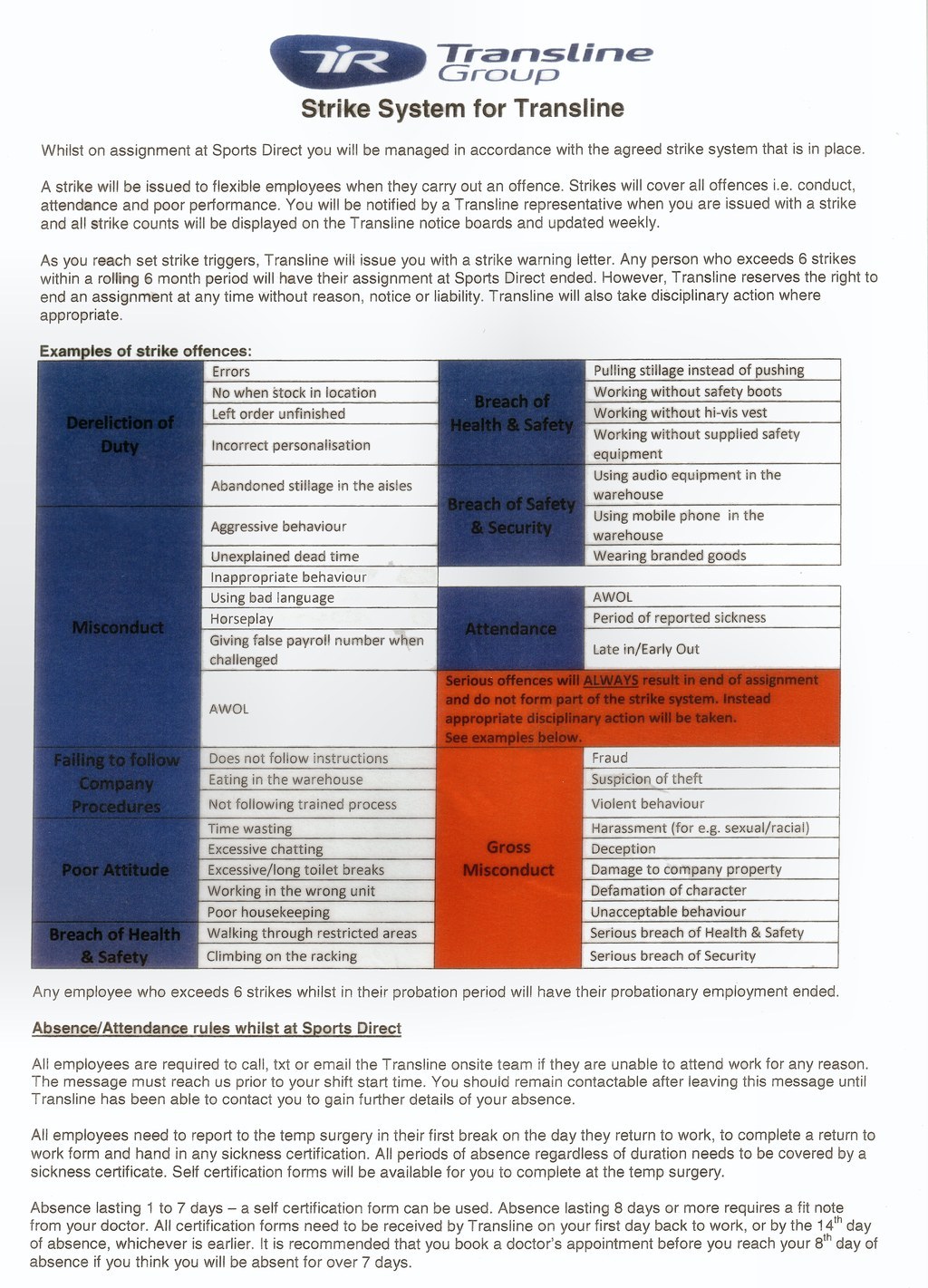
Speaking to BuzzFeed News, Sports Direct stressed that they provide working conditions in compliance with applicable employment legislation. A spokesperson said:
The company takes into consideration a worker's time keeping, attendance, sickness, conduct and performance target levels. Where a worker falls below the required standards, the reasons for this will be discussed (including any mitigation) and support and training will be provided. Where any employee continues to fail to reach these targets, a strike may be issued as a quarter, half or full strike. Any strike or partial strike issued expires after a six month period. The system used at Sports Direct is a points system and a worker can have up to 24 strikes on their record within a six month period before they are released from their assignment.
To find out more about how the retailer operates, BuzzFeed News spoke to 20 employees and ex-employees from across the country. Here's what they had to say:

What hours did they work, and how much were they paid?
"I worked there many moons ago, and let's just say it was the worst job I ever had. I don't remember ever signing a contract at all. I was paid £4 per hour and got a 15% discount in store on Thursdays only. I got paid about £40 a week, which just about covered my weekly travelcard and not much else."
"I worked up to 40 hours a week on about £6.50. I never had a pay rise despite being told I would get one. I lost out on about £650 during my time there, but after speaking to HR, they told me it was my problem to sort out."
"When I first started, I was still at university so I typically worked around 12 hours a week when I was studying. Once I'd graduated, it had risen to around 25 hours a week. Occasionally I would do 40 hours a week, but that was usually at busy times of the year, or if we were short-staffed. I was paid minimum wage, although we were given extra 'incentives' for selling certain branded products, usually around 5% of the product value."
"I seem to remember having to give an actual reason for not being able to do a shift on any weekend day, and a lot of the time 'university work' wasn't a valid enough excuse for them. It's worth noting that 40 hours is only the time I was paid for – they wanted you there at least 15 minutes before your shift and it would almost always be a good hour after my shift that I'd eventually be going home... It always felt like they were doing you a favour by giving you the hours, I will say that."
"On one occasion I was two minutes late due to the bus being delayed and they sent me home unpaid for the day."
"Very occasionally, we were asked to clock out and work unpaid for up to an hour if the shop wasn't ready for the next day, and the store hadn't made enough money that day to pay overtime. This system also meant that shifts could be cut at a moment's notice, leading to a massive lack of job security."
BuzzFeed News questioned a spokesperson from Sports Direct over the claims made by employees and ex-employees.
Sports Direct told us it believes that all employees must be paid for all the hours they work and that it would be "appalled" if employees were made to work outside their set hours and not be paid for their full hours.

Were they on a zero-hours contract, and if so, what was it like?
"Being a student, I was happy for any work I could get. They came round with a clipboard during your break to ask what days you wanted – you'd start the week with 0. They never seemed to be short of people but they would always want you to be available. Supervisors were in the same boat as me, i.e. being given hours, and they'd been there for years."
"I was roughly working around 15-25 hours a week at minimum wage. I was on a zero-hours contract during the whole duration of my employment."
"I was on a zero-hours contract for my entire time working there and I got paid £5.50 an hour. My hours always varied each week and I had to call up on a Sunday to find out my shifts, which also cost me."
"Like all but one non-managerial member of staff at the store I worked in, I was on a zero-hours contract for the entire time that I was employed. It was initially useful, as I was able to fit in writing my dissertation around my working hours quite comfortably."
"I did work on a zero-hours contract and was paid above minimum wage. At the time, I was going through university, and this was my first job, so the initial prospect wasn't a problem for me. In fact, the flexibility of a zero hours contract suited me, as I could specify what times I was available to work a shift, depending on my University lectures."
"The situation may not be ideal for everyone, particularly those with families to support, who need a guaranteed number of hours a week to sustain an income."
When we asked Sport's Direct about their use of zero-hour contracts and whether they planned to replace them with different contracts that ensure fixed hours are in place, we were told that the firm will continue the process of reviewing, updating and improving its core employment documents and procedures across its entire business beyond its existing compliant framework.
The retailer stressed that it invests in its employees by nurturing them and promoting them internally, and that it offers them a number of opportunities to advance in their careers.
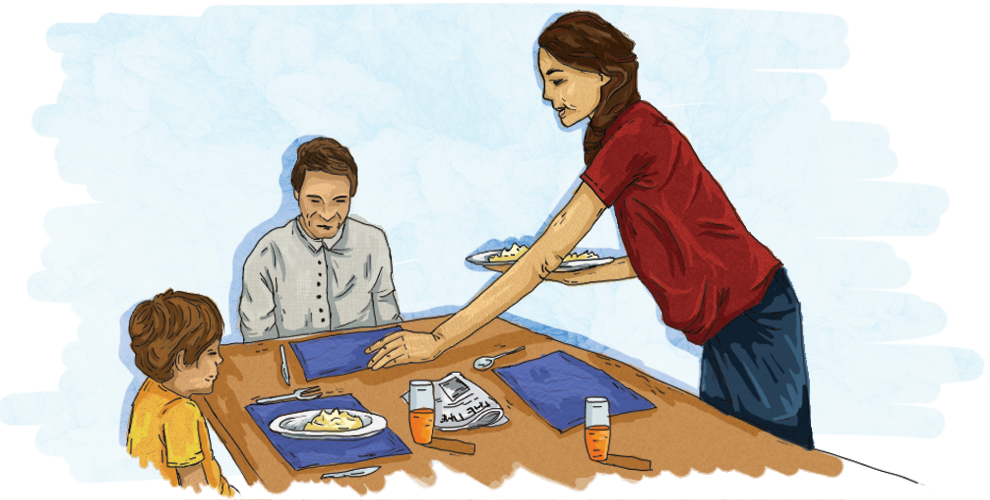
What was the working environment like?
"My manager had a unique way of distributing hours. Essentially, if he considered you to be an attractive female, you would receive a considerable amount of hours each week. If you were male, a sense of humour matching his, and good 'banter' with him, would guarantee you suitable hours. If you were a hard worker like myself, but had a differing sense of humour, then you suffered financially as a result."
"Sports Direct as a whole was not a bad company to work for; instead, the lack of guidelines for management and the way staff were treated in general was what made it, for me personally, such a negative experience."
"I left because my supervisor took me in to the stockroom and began to use abusive language because I hadn't sold an insole that day. That was the final straw."
"It was a nice environment to work in the store – we had some great laughs. The only thing that let them down was head office. I got offered a job in IT at head office when I fixed out store's network. But even with that job offer, I didn't get a raise."
"To be quite frank, it was quite shit. Every week on the day the rota was released was a nervous wait, followed by inevitable disappointment. Reading across the days under your name and working out your exact hours, followed by how much that would translate to over the course of the week, would quite often leave you feeling sick with worry as to how you would make ends meet once again."
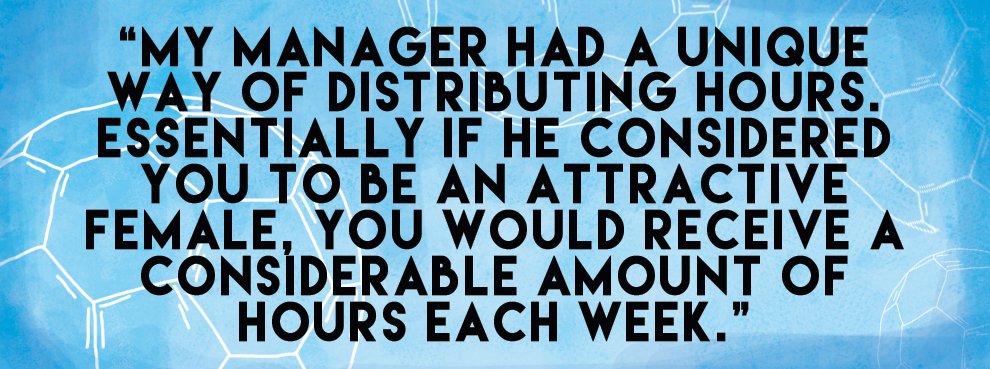
"We were treated like children. We would be locked in the store after it closed to tidy up without getting paid anything extra. It was horrible. When my shift would finish at 8pm when the store closed, my manager would walk around inspecting it, pulling clothes from the railing and throwing the clothes on the floor that looked untidy. Simply stating that they looked untidy wasn't enough. The next hour was spent tidying up all the items which were now piled on the dirty floor. I wouldn't finish until 9pm and wouldn't get paid any extra for staying late."
"We had to clean the loos, even though we were employed as sales assistants."
"You'd often start at 8am, but have to be there between 7:30am and 7:45am, otherwise you were classed as 'late'. I vividly remember a manager telling me on my first day that the company mantra was 'stack it high, sell it cheap', which tells you everything you need to know."
"The atmosphere was awful. You weren't allowed to speak to your work colleagues, otherwise you would be moved or be given a warning."

"Even though I was only 22, I was one of the oldest members of staff at the store I worked at, and new employees rarely stayed for longer than a month or two. It seemed like every weekend there was another new person to train. All staff, even the area managers, had to be searched on exit, which made me feel like I was never fully trusted."
"They told me that I had to physically tackle people if I saw them stealing, because every penny counted, even if it meant getting injured."
"They also had an unofficial rule that managers and supervisors could talk to you in any manner they wished to in the shop – this was because in the 'heat of the sales' they couldn't be held accountable for how they spoke to you. Needless to say, I thought all of them were absolute pricks."
"There was one occasion that a female staff member had requested the Saturday off as she was seeing her oft-absent father. She was told that if she was chosen to work that day she would have to work it, no exceptions, unless somebody would swap with her. She protested that she was requesting pre-rota release, and that her contract meant she could do this. The manager refused to confirm or deny she would get this day off. Thankfully somebody was kind enough to swap with the girl as the manager had put on her all day."
Sports Direct said their employee satisfaction levels are "constantly scrutinised" by the Group, with employee retention indicators being reported to the Board in every Board meeting. They also denied the claim made by one ex-employee that he was told to "tackle" shoplifters. The retailer told BuzzFeed News:
"No Sports Direct employee should ever be allowed to tackle a shoplifter and we encourage any employee who was so instructed to contact us. We note that BuzzFeed is making an accusation apparently on the basis of anonymous statements by one of 28,000 current employees or the tens of thousands of former employees. There is no date and no location for this slur."
Sports Direct also stressed that they were unable to address specific concerns without knowing the personal information of those who spoke to BuzzFeed News, which we refused to do on the grounds that they had been promised anonymity.
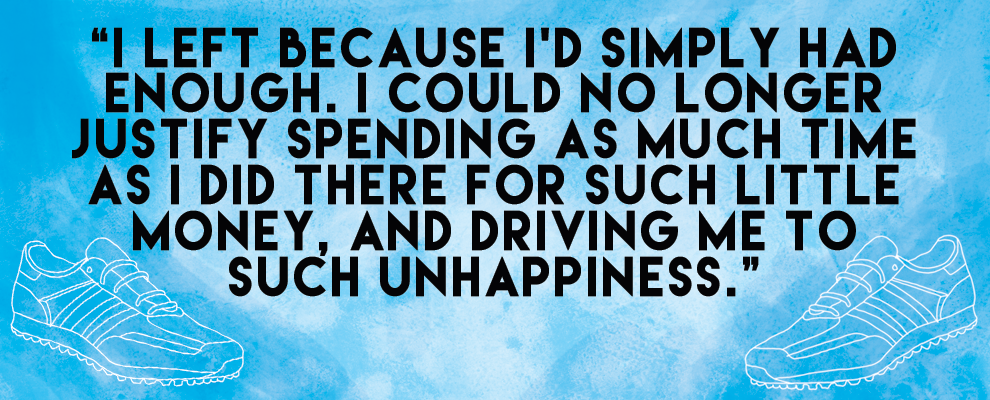
Did they make enough to live on?
"The hours just about covered my monthly rent, which I know a lot of people would have had to contend with being students and all, but I also had to factor in how much time it would take from me. The hours I worked left me little time to do my coursework. I wasn't able to balance it without sacrificing either my course or money. It's not enough to live on, not at all. Or rather, you can, but it's not actually 'living'."
"My income did support my life when I was at school. A pay rise was meant to come in when I was saving up to go on a gap year, but it didn't, and their excuse was that they were waiting until I came back at Christmas. When I later asked for the raise, It was only 50p an hour."
"I am certain that had I not been receiving financial assistance from student loans, I would not have been able to afford my rented student house while working at Sports Direct."
"Sometimes I would travel by bus to work, only to work one hour or less, and then be sent home, essentially losing more money than I'd earned. One of my colleagues had the same happen to her, despite her walking an hour each way to and from work."
"I left because I'd simply had enough. I could not longer justify spending as much time as I did there for such little money, and driving me to such unhappiness. They kept telling us all that they had such a massive turnover of staff like it was a source of pride for them, because some people 'can't hack it', when in reality people must have done what I did and realised it wasn't worth it."
"My life at my time of working at Sports Direct was just about covered by my wages. I had graduated that summer and still lived at home with parents who didn't make me pay rent/housekeeping. I was left with very little disposable income for social events/activities, but never enough to put any savings aside. My desire to leave home and finance my own lifestyle was overwhelming. It's worth noting that any employees (and we did have some at my work) that had families to support, rent to cover, cars on finance, or debts to pay, were pretty much screwed."
"I consider those few months among the worst of my life. That's not being dramatic either, it was absolutely awful and I'd love to see the back of them altogether."
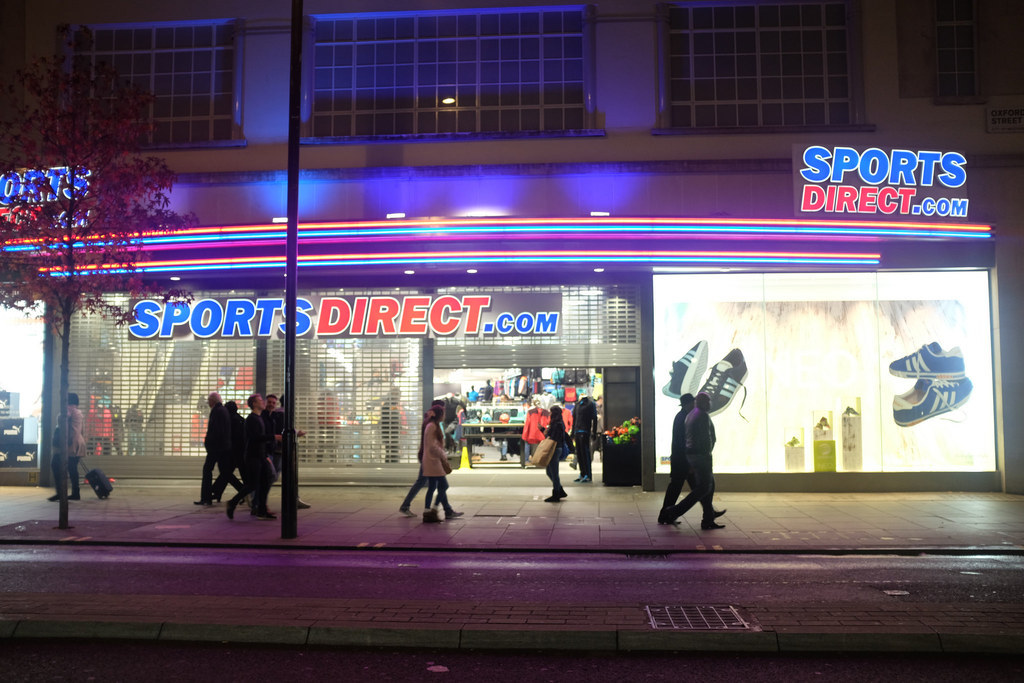

Sports Direct is not the only company using the zero-hours employment model – although it is the most high-profile.
Across the country, according to the Office for National Statistics, the people most likely to be on zero-hours contracts are women, those in full-time education and those aged under 25 or over 65. Around a third of them would like to work more hours, with most wanting them in their current job.
The coalition accepted there were problems with zero-hours contracts. But it only banned exclusive contracts – those that prevent people from working elsewhere. Conor D'Arcy, a policy analyst at the Resolution Foundation, told BuzzFeed News that it's important to ensure zero-hours contracts do not become a standard form of employment in low-paying sectors, "while taking care to ensure that those workers who value their flexibility don't lose out".
"The fact that the number of people on zero-hours contracts has continued to grow, even as the jobs recovery has strengthened, suggests they were more than just a way for employers to ride out the recession," D'Arcy said. "Zero-hours contracts look here to stay. While some workers, such as students and people approaching retirement, value the flexibility they offer for many others they bring insecurity and make it hard to manage their finances."
